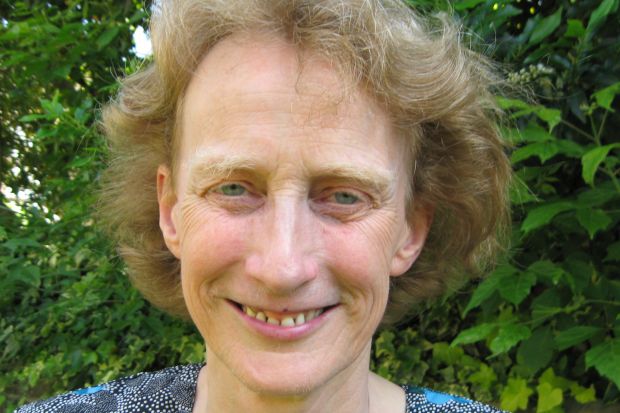Early career female scientists are being forced out of academia because they face a “hostile environment” in which their research is often rejected owing to unconscious male bias, one of Britain’s most prominent female scientists has claimed.
Dame Athene Donald, master of Churchill College, Cambridge, said universities and research funders must do more to listen to female PhD students who decide against a career in academia, often because they feel unable to contend with sexist attitudes that result in their research being treated more harshly than work produced by their male peers.
Speaking at the launch of the Research on Research Institute – a new collaboration founded by a group including the Wellcome Trust, the technology firm Digital Science and Sheffield and Leiden universities to analyse how research systems can impact science policy across the world – Dame Athene said the UK sector needed “really good qualitative data on why people drop out [of academia]”, particularly as “women [scientists] drop out more often than men”.
“I get frustrated hearing that women are dropping out to have babies,” said Dame Athene, who claimed that the higher attrition rate was explained in part by “a hostile environment” faced by female scientists.
“But how many times do we do exit interviews [with PhD graduates]?” she asked, noting the paucity of research into why early career female scientists quit academia.
Dame Athene, a professor of experimental physics, was responding to evidence presented by Sally Hancock, lecturer in education at the University of York, which showed that female PhD science graduates were far less likely to remain in academia than male ones.
Drawing on a survey of 4,288 PhD graduates taken from the Destinations of Leavers from Higher Education survey in 2011-12 and 2013-14 – the most comprehensive longitudinal UK data available on PhD graduates – Dr Hancock explained that only one in five biological science PhD holders staying in academia for three years was a woman, while the figure was roughly one in four for physics and engineering.
Dame Athene said it was important for publishers to examine how they were contributing to this problem because reviewers were more likely to reject papers written by women, making it harder for them to produce highly cited publications required by university hiring panels.
“How many [papers] are thrown out by authors because, subliminally, they see that a female was the lead author?” asked Dame Athene, who added: “We are not going to sort this out unless publishers address this.”
The event also heard from Molly King, assistant professor in the department of sociology at Santa Clara University, in California, who presented her research, published in 2017, which found that the “average man self-cites 56 per cent more than the average woman”.
With one in 10 citations being self-citations, this phenomenon had the potential to influence the relative visibility of research by men over women, said Dr King.
Register to continue
Why register?
- Registration is free and only takes a moment
- Once registered, you can read 3 articles a month
- Sign up for our newsletter
Subscribe
Or subscribe for unlimited access to:
- Unlimited access to news, views, insights & reviews
- Digital editions
- Digital access to THE’s university and college rankings analysis
Already registered or a current subscriber? Login












